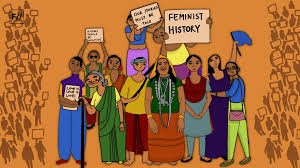Naveed Hussain
Abul Kalam Azad, a prominent figure in the Indian independence movement, was born on November 11, 1888, in Mecca (now in Saudi Arabia) and passed away on February 22, 1958, in New Delhi, India. Azad played a crucial role as an Islamic theologian and leader during the first half of the 20th century. His dedication to the cause of Indian independence against British rule and his unwavering moral integrity earned him profound respect throughout his life.
Azad’s early life was a testament to his resilience and determination. Born in Mecca and later raised in Calcutta, he received a traditional Islamic education at home. However, the influence of Indian educator Sir Sayyid Ahmad Khan sparked a desire in him to pursue English education. Despite the disapproval of his father, he secretly learned the language, a testament to his unwavering determination.
Working in journalism, Azad established the influential Urdu-language newspaper Al-Hilal (“The Crescent”) in Calcutta in 1912. Al-Hilal became renowned for its anti-British stance and quickly garnered influence within the Muslim community. Its outspoken criticism of Indian Muslims loyal to the British led to its eventual ban by British authorities, along with another weekly newspaper launched by Azad. This subsequently led to his banishment to Ranchi, where he remained until 1920. Upon returning to Calcutta, he joined the Indian National Congress and actively mobilized India’s Muslim community, particularly during the Khilafat movement (1920–24), advocating pan-Islamic ideals.
Azad’s commitment to the cause of Indian independence was unwavering. He formed a close alliance with Mahatma Gandhi and actively participated in civil disobedience campaigns, including the historic Salt March in 1930. His passion and dedication to the cause led to multiple imprisonments between 1920 and 1945. Serving as the president of the Congress Party in 1923 and again from 1940–46, Azad passionately advocated for Indian independence and the unity of Hindus and Muslims.
Post-World War II, Azad played a pivotal role in negotiations for Indian independence. He vehemently opposed the partition of British India into independent India and Pakistan, a decision that he deeply regretted. Despite his efforts, the subcontinent was ultimately divided, a fact that he lamented and attributed blame to Congress Party leaders and Mohammed Ali Jinnah, the founder of Pakistan. Following the establishment of independent India and Pakistan, Azad served as the Minister of Education in the Indian government until his passing. His autobiography, “India Wins Freedom,” was published posthumously in 1959. Decades after his death, in 1992, Azad was posthumously honoured with the Bharat Ratna, India’s highest civilian award.
“India Wins Freedom” by Abul Kalam Azad is an autobiographical account that dissects into the Indian independence movement, Azad’s role in it, and the broader themes of unity, freedom, and the challenges faced during the struggle for independence. The book explores Azad’s unwavering commitment to the cause of Indian independence and his vision for a united and harmonious India, transcending religious divides. Additionally, Azad reflects on the repercussions of the partition of India and expresses his deep regret over the division. The theme of unity, the struggle for independence, and the complex aftermath of partition are central to “India Wins Freedom.”
















